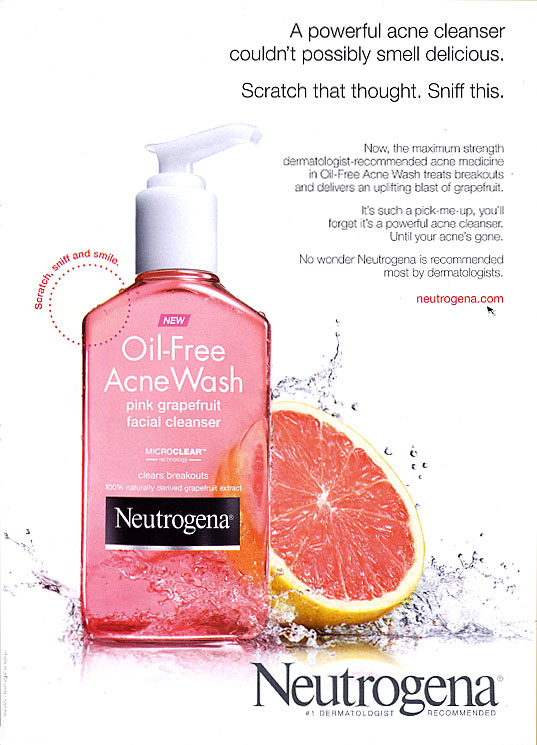Of course we have all seen those perfume ads, where you can actually smell the scent of the perfume in the magazine. However, Jacquelyn Son’s Blog post, “Scented ads” really caught my attention. This is the first time I’ve heard of other types of companies, such as Neutrogena, implementing scented advertisements.
I completely agree with Jacquelyn that scented ads would probably get more people to notice a company’s ad. Although I see little benefit from Apple having an ad that smells like apples, it would at least draw the attention of consumers , if not actually convince them to buy the product. If the scent is somehow related to the product, I believe this can be of a much greater advantage to a company.
I do feel companies have to be careful when using scented ads though. Although I agree with Jacquelyn that a scented Starbucks ad would probably make most people want to go to Starbucks and purchase a coffee, companies need to consider allergies. The fact that some people are sensitive to scents could possibly have a negative effect.
Although higher costs may be a factor when companies are considering scented ads, newer technologies are becoming available that are decreasing costs. Instead of having a scented insert, companies such as, Scentisphere, offer printable scents, which are more cost effective.
I believe scented advertisements would be most beneficial for products that aren’t normally meant to smell good. Mr Clean has recently partnered up with Febreze and can probably benefit from a scented ad. Since cleaning products normally smell like chemicals, if consumers were to see an ad for this product and actually be able to smell the scent, perhaps they would be more inclined to purchase the product. Furthermore, scents produce an emotional response that could potentially allow the consumer to connect with the company in a unique way. When paired with the right ad, I believe scents would succeed in interacting with the consumer and ultimately increasing revenues for a company.

